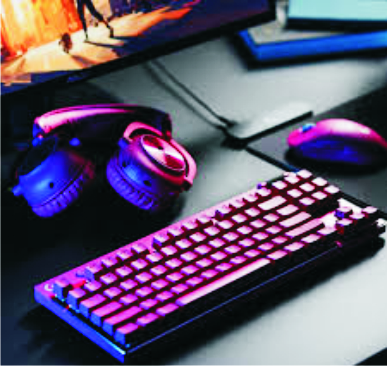By GWOM USMAN
IN the annals of history, the pen was once hailed as the ultimate weapon of progress. Empires trembled at the strokes of ink, revolutions were born from pamphlets and philosophies reshaped civilizations through carefully written manuscripts.
Yet, as Heraclitus reminds us, “the only constant in life is change.”
The age of ink has given way to the age of pixels, and today the pen, though still noble, is no longer enough. The mouse and keyboard have risen as the new weapons of progress.
The pen fought its battles in libraries, classrooms and parliaments. But the mouse and keyboard wage their wars in cyberspace. With them, a single individual can communicate across continents, dismantle ignorance in real time and create knowledge that is accessible to millions with a single click.
Descartes once said, “I think, therefore I am.” In our digital age, one may rightly add: “I type, therefore I connect.”
The power of the pen was bound by paper. But the keyboard knows no such limits. It is not constrained by geography, time or scarcity of parchment. The mouse, like a navigator’s compass, guides us through vast oceans of information, while the keyboard becomes the sword with which we carve meaning from data.
As Francis Bacon declared, “Knowledge is power.” The digital tools in our hands are now the conduits of that power, transforming mere knowledge into innovation.
However, this shift is not merely technical. It is philosophical. To cling to the pen alone in a world of digital speed is to risk irrelevance. Plato warned that “those who are too smart to engage in politics are punished by being governed by those who are dumber.”
Likewise, those who refuse to embrace the mouse and keyboard risk being governed by those who wield them with mastery.
This does not diminish the pen. Rather, it places it within a continuum. The pen remains a symbol of thought, but the keyboard and mouse are now the instruments of execution. Progress demands that we translate ideas into action. Therefore, in the Twenty-First Century, action flows not through ink, but through code, emails, research papers, online movements and digital platforms.
Thus, the new weapons of progress rest not in quills and inkpots. But in the hands that click and type. So, the future belongs to those who understand that the battlefield of development is digital, and the victors will be those who adapt.
As Nietzsche wrote, “He who has a way to live can bear almost anyhow.”
Our “why” is progress, and our “how” is found not in the pen alone, but in the mouse and keyboard that shape tomorrow’s destiny.
Usman is the Secretary General, Ibaas-Foron Development Organization (IFDO), Barakin Ladi LGA, Plateau State



